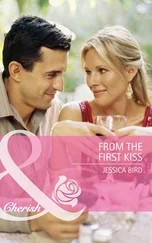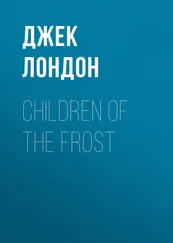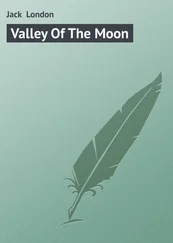Jack London - Children of the Frost
Здесь есть возможность читать онлайн «Jack London - Children of the Frost» весь текст электронной книги совершенно бесплатно (целиком полную версию без сокращений). В некоторых случаях можно слушать аудио, скачать через торрент в формате fb2 и присутствует краткое содержание. Жанр: Классическая проза, на английском языке. Описание произведения, (предисловие) а так же отзывы посетителей доступны на портале библиотеки ЛибКат.
- Название:Children of the Frost
- Автор:
- Жанр:
- Год:неизвестен
- ISBN:нет данных
- Рейтинг книги:5 / 5. Голосов: 1
-
Избранное:Добавить в избранное
- Отзывы:
-
Ваша оценка:
- 100
- 1
- 2
- 3
- 4
- 5
Children of the Frost: краткое содержание, описание и аннотация
Предлагаем к чтению аннотацию, описание, краткое содержание или предисловие (зависит от того, что написал сам автор книги «Children of the Frost»). Если вы не нашли необходимую информацию о книге — напишите в комментариях, мы постараемся отыскать её.
Children of the Frost — читать онлайн бесплатно полную книгу (весь текст) целиком
Ниже представлен текст книги, разбитый по страницам. Система сохранения места последней прочитанной страницы, позволяет с удобством читать онлайн бесплатно книгу «Children of the Frost», без необходимости каждый раз заново искать на чём Вы остановились. Поставьте закладку, и сможете в любой момент перейти на страницу, на которой закончили чтение.
Интервал:
Закладка:
Keesh was startled. A recollection of a hazy story told by Mr. Brown of one Adam, of old time, came to him, and it seemed that Mr. Brown had spoken true.
"So they lay hands upon all they behold, these white men, and they go everywhere and behold all things. And ever do more follow in their steps, so that if nothing be done they will come to possess all the land and there will be no room for the tribes of the Raven. Wherefore it is meet that we fight with them till none are left. Then will we hold the passes and the land, and perhaps our children and our children's children shall flourish and grow fat. There is a great struggle to come, when Wolf and Raven shall grapple; but Keesh will not fight, nor will he let his people fight. So it is not well that he should take to him my daughter. Thus have I spoken, I, Gnob, chief of the Tana-naw."
"But the white men are good and great," Keesh made answer. "The white men have taught us many things. The white men have given us blankets and knives and guns, such as we have never made and never could make. I remember in what manner we lived before they came. I was unborn then, but I have it from my father. When we went on the hunt we must creep so close to the moose that a spear-cast would cover the distance. To-day we use the white man's rifle, and farther away than can a child's cry be heard. We ate fish and meat and berries—there was nothing else to eat—and we ate without salt. How many be there among you who care to go back to the fish and meat without salt?"
It would have sunk home, had not Madwan leaped to his feet ere silence could come. "And first a question to thee, Keesh. The white man up at the Big House tells you that it is wrong to kill. Yet do we not know that the white men kill? Have we forgotten the great fight on the Koyokuk? or the great fight at Nuklukyeto, where three white men killed twenty of the Tozikakats? Do you think we no longer remember the three men of the Tana-naw that the white man Macklewrath killed? Tell me, O Keesh, why does the Shaman Brown teach you that it is wrong to fight, when all his brothers fight?"
"Nay, nay, there is no need to answer," Gnob piped, while Keesh struggled with the paradox. "It is very simple. The Good Man Brown would hold the Raven tight whilst his brothers pluck the feathers." He raised his voice. "But so long as there is one Tana-naw to strike a blow, or one maiden to bear a man-child, the Raven shall not be plucked!"
Gnob turned to a husky young man across the fire. "And what sayest thou, Makamuk, who art brother to Su-Su?"
Makamuk came to his feet. A long face-scar lifted his upper lip into a perpetual grin which belied the glowing ferocity of his eyes. "This day," he began with cunning irrelevance, "I came by the Trader Macklewrath's cabin. And in the door I saw a child laughing at the sun. And the child looked at me with the Trader Macklewrath's eyes, and it was frightened. The mother ran to it and quieted it. The mother was Ziska, the Thlunget woman."
A snarl of rage rose up and drowned his voice, which he stilled by turning dramatically upon Keesh with outstretched arm and accusing finger.
"So? You give your women away, you Thlunget, and come to the Tana-naw for more? But we have need of our women, Keesh; for we must breed men, many men, against the day when the Raven grapples with the Wolf."
Through the storm of applause, Gnob's voice shrilled clear. "And thou, Nossabok, who art her favorite brother?"
The young fellow was slender and graceful, with the strong aquiline nose and high brows of his type; but from some nervous affliction the lid of one eye drooped at odd times in a suggestive wink. Even as he arose it so drooped and rested a moment against his cheek. But it was not greeted with the accustomed laughter. Every face was grave. "I, too, passed by the Trader Macklewrath's cabin," he rippled in soft, girlish tones, wherein there was much of youth and much of his sister. "And I saw Indians with the sweat running into their eyes and their knees shaking with weariness—I say, I saw Indians groaning under the logs for the store which the Trader Macklewrath is to build. And with my eyes I saw them chopping wood to keep the Shaman Brown's Big House warm through the frost of the long nights. This be squaw work. Never shall the Tana-naw do the like. We shall be blood brothers to men, not squaws; and the Thlunget be squaws."
A deep silence fell, and all eyes centred on Keesh. He looked about him carefully, deliberately, full into the face of each grown man. "So," he said passionlessly. And "So," he repeated. Then turned on his heel without further word and passed out into the darkness.
Wading among sprawling babies and bristling wolf-dogs, he threaded the great camp, and on its outskirts came upon a woman at work by the light of a fire. With strings of bark stripped from the long roots of creeping vines, she was braiding rope for the Fishing. For some time, without speech, he watched her deft hands bringing law and order out of the unruly mass of curling fibres. She was good to look upon, swaying there to her task, strong-limbed, deep-chested, and with hips made for motherhood. And the bronze of her face was golden in the flickering light, her hair blue-black, her eyes jet.
"O Su-Su," he spoke finally, "thou hast looked upon me kindly in the days that have gone and in the days yet young—"
"I looked kindly upon thee for that thou wert chief of the Thlunget," she answered quickly, "and because thou wert big and strong."
"Ay—"
"But that was in the old days of the Fishing," she hastened to add, "before the Shaman Brown came and taught thee ill things and led thy feet on strange trails."
"But I would tell thee the—"
She held up one hand in a gesture which reminded him of her father. "Nay, I know already the speech that stirs in thy throat, O Keesh, and I make answer now. It so happeneth that the fish of the water and the beasts of the forest bring forth after their kind. And this is good. Likewise it happeneth to women. It is for them to bring forth their kind, and even the maiden, while she is yet a maiden, feels the pang of the birth, and the pain of the breast, and the small hands at the neck. And when such feeling is strong, then does each maiden look about her with secret eyes for the man—for the man who shall be fit to father her kind. So have I felt. So did I feel when I looked upon thee and found thee big and strong, a hunter and fighter of beasts and men, well able to win meat when I should eat for two, well able to keep danger afar off when my helplessness drew nigh. But that was before the day the Shaman Brown came into the land and taught thee—"
"But it is not right, Su-Su. I have it on good word—"
"It is not right to kill. I know what thou wouldst say. Then breed thou after thy kind, the kind that does not kill; but come not on such quest among the Tana-naw. For it is said in the time to come, that the Raven shall grapple with the Wolf. I do not know, for this be the affair of men; but I do know that it is for me to bring forth men against that time."
"Su-Su," Keesh broke in, "thou must hear me—"
"A man would beat me with a stick and make me hear," she sneered. "But thou … here!" She thrust a bunch of bark into his hand. "I cannot give thee myself, but this, yes. It looks fittest in thy hands. It is squaw work, so braid away."
He flung it from him, the angry blood pounding a muddy path under his bronze.
"One thing more," she went on. "There be an old custom which thy father and mine were not strangers to. When a man falls in battle, his scalp is carried away in token. Very good. But thou, who have forsworn the Raven, must do more. Thou must bring me, not scalps, but heads, two heads, and then will I give thee, not bark, but a brave-beaded belt, and sheath, and long Russian knife. Then will I look kindly upon thee once again, and all will be well."
Читать дальшеИнтервал:
Закладка:
Похожие книги на «Children of the Frost»
Представляем Вашему вниманию похожие книги на «Children of the Frost» списком для выбора. Мы отобрали схожую по названию и смыслу литературу в надежде предоставить читателям больше вариантов отыскать новые, интересные, ещё непрочитанные произведения.
Обсуждение, отзывы о книге «Children of the Frost» и просто собственные мнения читателей. Оставьте ваши комментарии, напишите, что Вы думаете о произведении, его смысле или главных героях. Укажите что конкретно понравилось, а что нет, и почему Вы так считаете.









